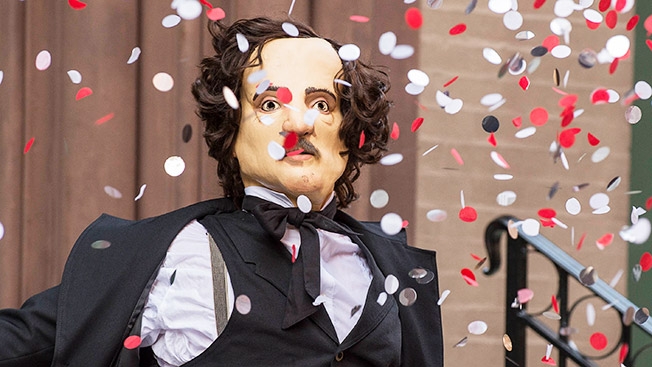There's a very interesting conversation going on just beneath the surface of network TV about the blurred lines between imagination and reality.
It began in a very heavy-handed yet still entertaining way with Fox's new hit show, The Following. In it, Kevin Bacon plays the stereotypical FBI burnout Ryan Hardy, who's called out of the mothballs to recapture his old nemesis, literary professor/author turned Edgar Allan Poe-obsessed serial killer Joe Carroll, played by the very underrated James Purefoy, and his growing thrill-kill cult. While the serialized Rube Goldberg-style plot really stretches your ability to suspend disbelief in a way that only the craziest shows like "Lost" and "24" could in the past, the really interesting aspect is how Carroll sees himself as the actual author of the story playing out before us on the show. For Carroll, each crime he and his minions commit are all chapters in a book he is literally writing in the show about Ryan Hardy, who he's chosen as the protagonist. I'm reminded of something I think I read from John Byrne that, in the best stories, you take characters that you love and you torture them.
So, we have these fascinating moments where Carroll, without actually breaking the fourth wall, is forced to negotiate between his hatred and profound desire to just kill Hardy and his narcissistic need to keep Hardy alive so he can give him a good and satisfying ending in the story. Yes, it's crazy, but it's occasionally funny and always entertaining.
Check out The Following, Season 1, Episode 12 - The Curse - on Hulu.
Let's just say, I'm waiting to see how packing a mansion with a bunch of homicidal maniacs on holiday eventually works itself out.
But, the far more interesting side of this conversation about imagination and reality is happening in NBC's new series, "Hannibal". In this prequel to "The Silence of the Lambs", Hannibal Lecter (played masterfully and completely separately from Tony Hopkins Oscar-winning performance in the film version) is merely an extremely cultured psychiatrist called in to counsel Hugh Darcy's Will Graham, an FBI profiler who is credited with the talent for "pure empathy". Graham is able to walk into a crime scene and instantly and accurately imagine how the murderer felt as he committed the crimes based on the evidence in front of him. In these moments, Graham tells the story of what happened to the victims from the killer's perspective, much like how slasher movies back in the '80's forced the audience to literally see the teenage camp counselors through the murderer's eyes.
Check Out Hannibal: Pilot on Hulu.
Graham has such an amazing imagination that these horrific things cling to him long after and, of all people, it's Dr. Lecter's job to keep him sane throughout.
While they deal in very similar subject matters, Hannibal is a noticeably more sophisticated show than The Following in virtually every detail - performances, production, and, most important of all, writing. But, in this instance, instead of a character trying to get control of the reality around him to suit his own ends, like Joe Carroll, Will Graham is desperate to get control of the increasingly deadly alternative realities inside of him, and, frankly, Hannibal Lecter is just adding fuel to the fire.
I just thought these were interesting dichotomies - using fictitious serial killers to explore how we interface with the worlds both within and without (and the price that comes with both). They're both quite good, and neither is for the faint of heart.
Frankly, I'm still stunned by what's getting past the network sensors these days.


No comments:
Post a Comment